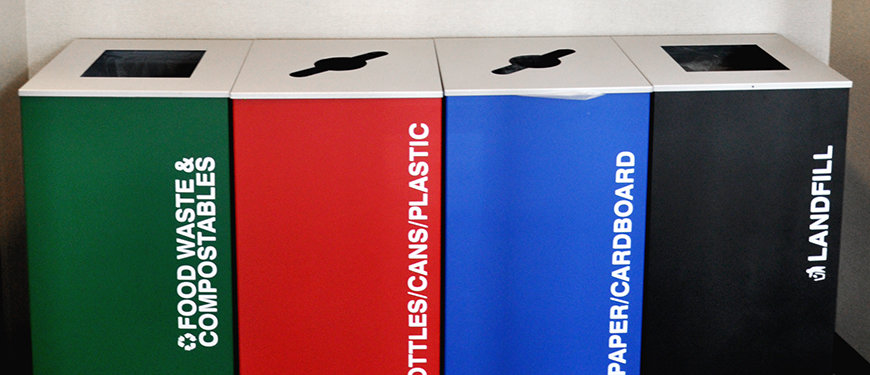Starting a composting program at your facility can save money, decrease your environmental footprint, improve employee job satisfaction and fulfill customer demands for sustainable business practices.
The EPA states that almost 95 percent of the food we throw away ends up in landfills or combustion facilities. According to ReFed.com, each year, 52.4 million tons of food is sent to landfill. Once in landfills, food breaks down to produce methane, a potent greenhouse gas which contributes to climate change. Many large cities are starting to mandate zero waste goals for the near future, so establishing a composting program now is just one step in that process.
Composting is sometimes looked at as an expensive process that leaves unpleasant smells. On the contrary, composting can actually save your business money by reducing the amount of trash you produce and in turn reducing your waste disposal fees. And since compost is made up of materials you usually dispose of, it will smell the same as the waste you currently put in your trash bins.
While restaurants have seen the biggest push for composting, the food industry is not the only one that can work to keep leftover food and other organic materials out of landfills. Large and small companies can start their own composting programs to ensure scraps from kitchens and catered events don’t end up in a landfill. In addition, now many disposable paper products can be composted, such as napkins, used paper towels and some take-out containers deemed compostable.
You can help to start a composting program at your workplace by following these steps:
- Contact your waste management company to see what services are available. Most likely your current trash pickup provider has a composting option available. If not, reach out to local colleges and universities. Many of them are proactively developing composting programs on campus as well as working with municipalities to create city wide initiatives.
- Publicize the switch to three-stream waste system – trash, recycle, compost – in your company newsletter, website, email communications and with clear signage near waste receptacles to help facilitate changes in staff and customer behavior.
- Place clearly marked lidded containers lined with compostable bags in food areas with instructions for adding food leftovers, flowers, coffee grounds, tea bags and uncoated paper cups and plates, as well as in restrooms for paper towel collection.
- Establish a workplace Green Team, made up of employees from various departments and seniority levels who can lead the charge on the initiative, recommends City of Portland Bureau of Planning and Sustainability.
- Work with janitorial staff, or create a schedule for Green Team members to collect waste from around the workplace, and place it in compost removal bins by your trash and recycling. Regularly track and share your progress on how much waste has been diverted from landfill, encouraging employees that the success is due to everyone’s efforts.
Helping to make a greener workplace is just one small change we all can do that can make a big impact on the environment.
